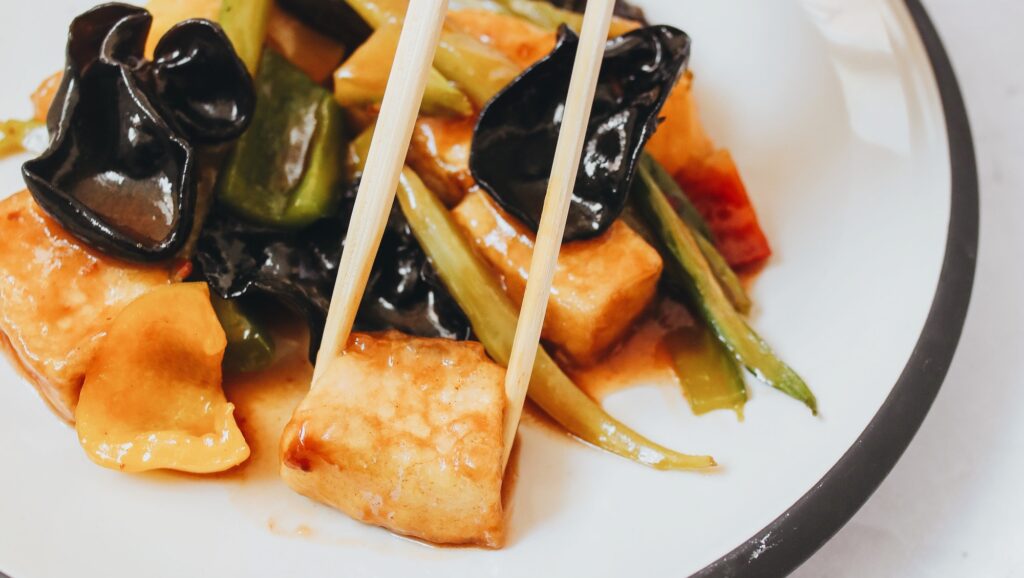Soy-free tofu made from yellow peas? UK-based startup Peafu is making it a reality.
The company makes sustainably-produced tofu using the legumes. But what exactly makes Peafu’s tofu more eco-friendly?
“When looking at environmental impacts of the entire food supply chain, from farm to retail, peas have been calculated to have comparatively low greenhouse gas emissions compared to other protein sources,” the company captioned in an Instagram post.
The company’s founder, Tor Kemp, tells LIVEKINDLY there are no carbon emissions from importation because Peafu is made from locally grown yellow peas. “The majority of soy consumed in the UK comes from outside of Europe,” she explains.

She adds that Peafu redirects locally produced protein for direct human consumption and helps to improve the local soil quality on UK farms because of the soil-improving properties of peas.
“Pea plants increase the nitrogen in the soil and reduce the fertiliser needed for growing other crops such as onions, squash and spinach,” Peafu writes on Instagram.
The environmental impact of soy initially inspired Peafu’s founder—Dr. Victoria Kemp—to launch the company. She had previously spent time working in landscapes being converted for cash crops while training to become a tropical forest ecologist.
“After seeing habitat destruction and the effect on local ecology, I want to find a way to mitigate this impact, with a focus on food production,” Kemp explains. “So the idea of pea-fu was born.”
Peafu: Soy-Free Tofu
Peafu isn’t just a sustainable protein option. Its nutritional profile also stacks up to that of soy-based tofu. According to the brand, its pea tofu is a good source of plant-based protein. It’s also a good source of vitamins and minerals like B vitamins, iron, phosphorus, and phytonutrients.
“Unlike soy tofu, which has very little flavour, we are aiming to harness the slightly earthy/nutty taste of the yellow pea,” Kemp says. “The pea tofu will still be a sponge for added flavours in the meal preparation, be they spicy, smoky or sweet.”
The company is tapping into a burgeoning market. According to market research firm Grand View Research, the global plant-based meat market is expected to be worth $13.8 billion by 2027.
The report also finds that—particularly in Europe—the demand for plant-based protein is increasing due to a growing interest in veganism. In 2019, soy-based products, such as tofu, accounted for a significant portion of the market share at 48 percent.
In November 2020, Peafu won the Queen Mary Enterprise’s QIncubator programme, which supports local startups. “I gained a lot of knowledge during QIncubator. And now have far more confidence to discuss my business idea with potential investors and partners,” Kemp explained in a blog post.
Peafu is currently in the prototyping phase. The company aims to make its pea-based tofu commercially available to select UK retailers in early 2022. Peafu aims to expand into additional UK markets and across Europe in the next two or three years.
“It’s a very exciting time for Peafu. I am currently looking for expertise to help with recipe development,” Kemp added. “And I am expanding my upstream and downstream market research to not only learn more about the supply of peas from British farms, but also better understand what people want from their plant protein pantry staples.”
The pea-based tofu will join the likes of other soy-free tofu brands—including Pumpfu and Chikfu. The companies make their tofu from pumpkin seeds and chickpeas, respectively.


